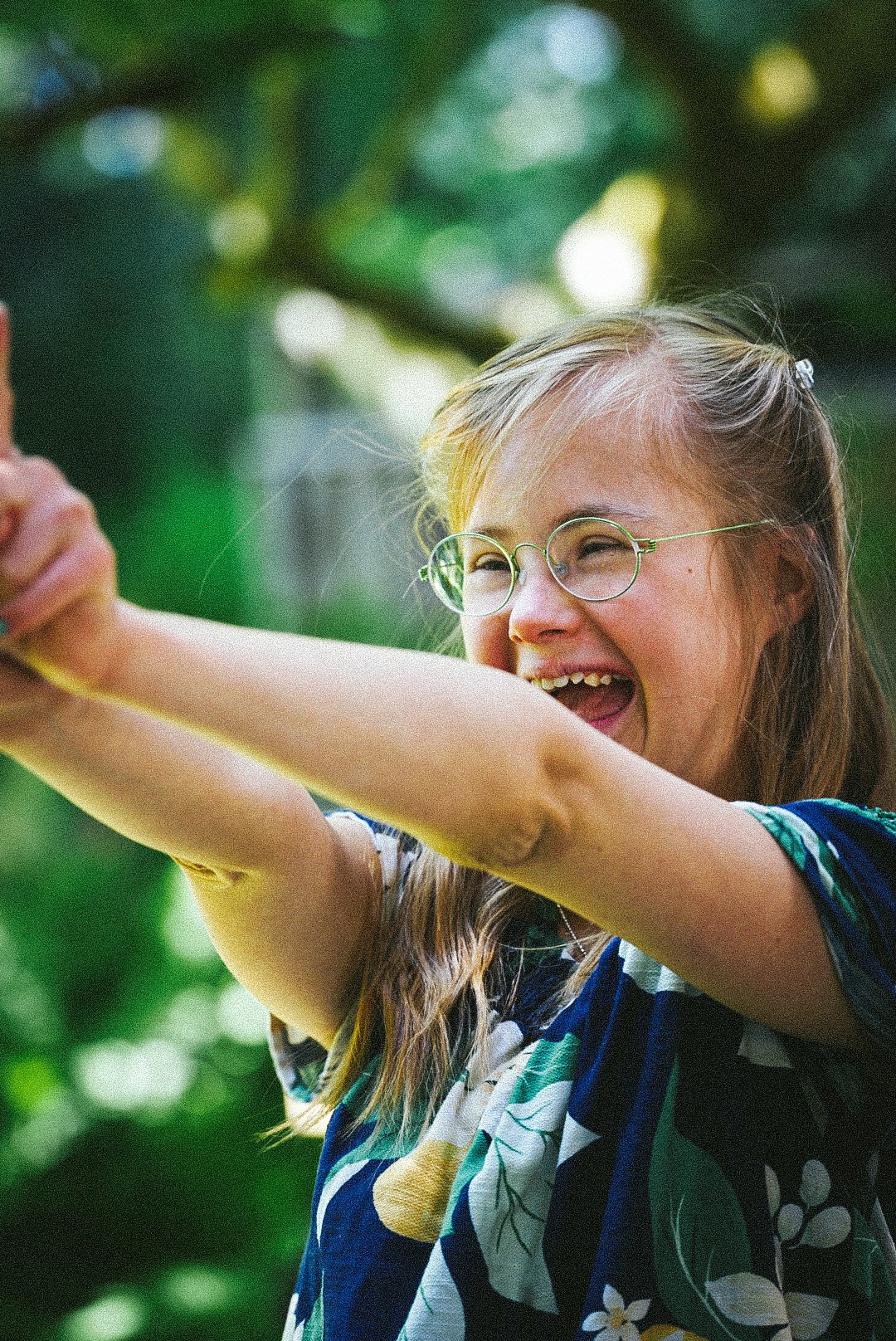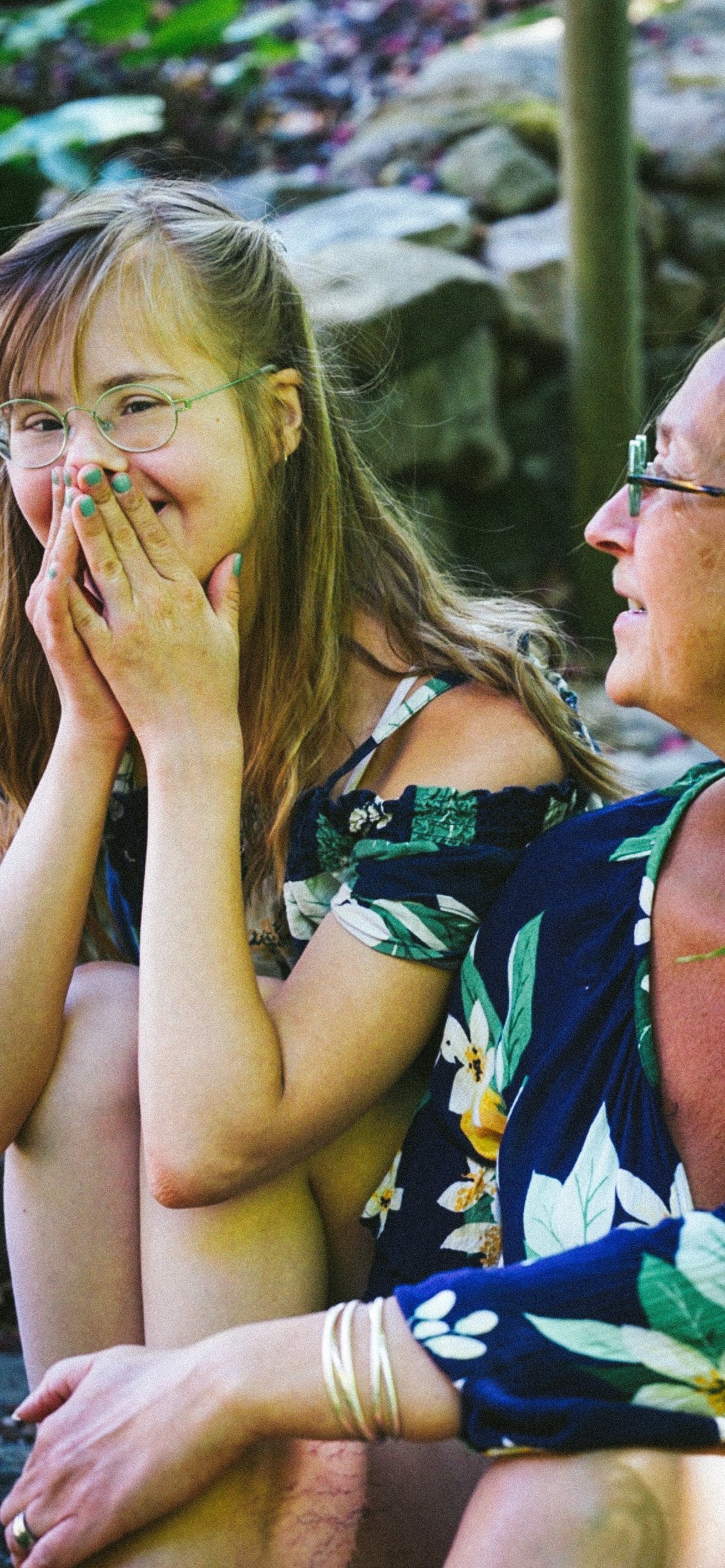I appreciate being asked about screening.
You have no idea how often I've been asked what it was like when I was pregnant with Doris. I have met lots of women who have asked and wondered about amniocentesis, cervical gap measurement and possible complications during pregnancy and childbirth. Nah! Nothing strange here! But it was about a "probability" (I use the word "probability" because the word "risk" becomes very strange in this context) that my child would be a baby with Down syndrome or not. Despite that, it is precisely the word "risk" that is used for chromosomal abnormality. This "risk" did increase a little after testing during pregnancy, but we didn't think too much about it.
In any case, it became obvious that our daughter had Down syndrome when she came out one sunny midsummer 15 years ago. An average of 153 children are born in Sweden each year with DS and there are approximately 5-10,000 people with DS in our long country right now.
I welcome the question of how, what and which choice you as an expectant parent make or made. Some people think it feels stupid and unpleasant to even talk about it, but I know that people really wonder about how and why, and I therefore think that it is very positive that so many actually have the courage to show their curiosity.
We have a strange expectation of an elitist society where not everyone fits in. We think we know what can be controlled or not and we perhaps also think that there is some form of guarantee for us, our children's lives and perhaps health. Now that the question comes up, I see it as an opportunity to share how I feel about that idea.
Well, it became a child with all that that entails, including an extra chromosome. What would we have done if we really knew that our child would have Down's Syndrome? Well, who can answer that? We might have made a decision based on pure ignorance. You can't know who will come out and that's what's so sad that the face we see in front of us in various scans has given us slanted eyes. Just as if these people weren't as different as the rest of us. If we look at a school class, for example? How similar or different are the students? It could be that most of the kids have 46 chromosomes, two ears, and maybe think french fries are a godsend. Perhaps it is the case that some parents consider themselves to have the money, conditions or time to get involved in schooling.
But that is not true, as all children are different and we all have different conditions. Adults as children and the very designation that certain individuals are not welcome because you think you know that the consequences may be a little different. I understand society's problems and really don't put myself on high horses, but society's image of people with ds is skewed and unvarnished and therefore I like to see diversity in our different flows and I am more than happy to answer questions.
This is so important and no questions are stupid here. People with ds are different, but there are things that are more common in them and there sometimes we have heart defects, thyroid problems, learning disabilities, mess with language development just to name a few. I want to try to highlight that much of this can be worked with in a positive direction and there are no limits here. As well as the fact that we other "46 chromosomes" have things to work on. Even there it looks a bit dark sometimes, but our value as human beings doesn't diminish for that, or...? I explain, tell and show and constantly think about how we all, not only Doris and others with morbid Downs, but also about everyone's opportunities to develop and grow because there is so much we can work with and do, if only we finds strength, desire and will.
Well, I hope the questions continue, because in this way we ourselves are forced to reflect and I hope that you who read this will also have the opportunity to develop and learn more about you and more about yours. Do you want to know more? Then I recommend looking around here in my blog about our path as seen with Doris. Otherwise, I warmly recommend the Swedish Down Association's website. Here you will find excellent sources of knowledge.




